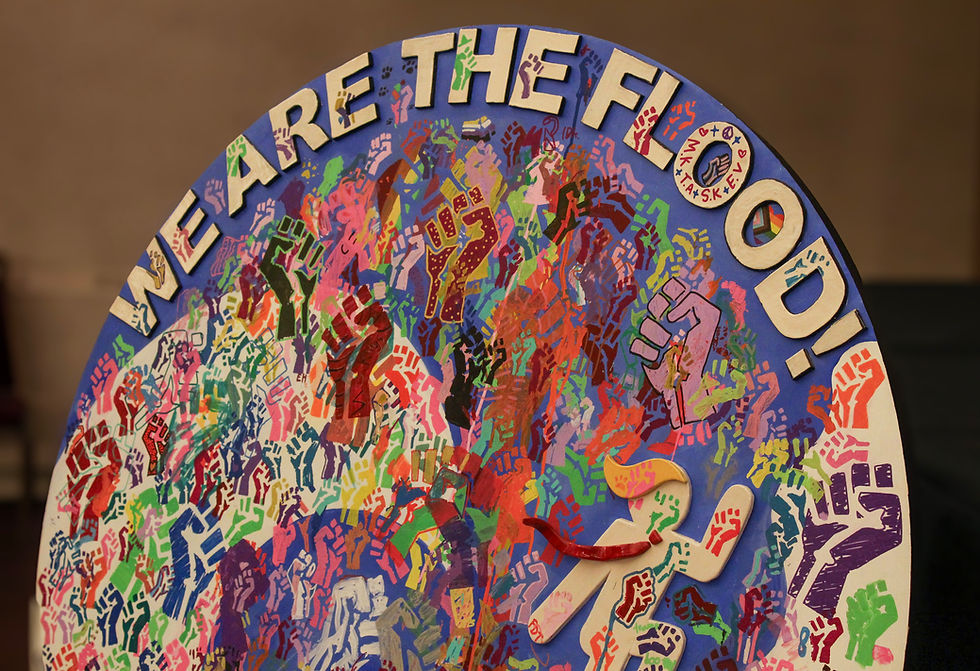The Office of Spiritual and Religious Life: A comforting ear on campus
- Collegian staff
- Oct 20, 2022
- 4 min read
Priya Thoren
Contributing Writer

The resources provided by the Office of Spiritual and Religious Life are being expanded throughout the Willamette University community this fall semester. Chaplain Ineda Pearl Adesanya explained in an interview that the office is meant to be a space for well-being and connection for all students, although it does not have to be confined to a physical space such as the office. “Wherever there is spiritual and religious life, it should feel like and present a space for either well-being or connection,” she said. The office, located on the second floor of the UC, provides a space to channel these feelings, including a reflection room where students can reflect, meditate, or simply be alone for a while.
If students would like to take a more active approach to exploring spiritual connection, they are welcome to attend talks, lectures and discussions around matters of social justice. The office provides social justice-type programming including the Martin Luther King observations in January.
The Office of Spiritual and Religious Life also offers a two-credit class called “convo.” Convo topics range from fun and inviting subjects, like an inclusive fashion show sponsored by students, to more serious talks about topics such as racial justice. It is a space where students can engage with matters that are important to them outside the classroom, Adesanya said: “[Convo] is historically the time slot that used to be mandatory chapel when [Willamette] used to be a religious institution. It's now a non-mandatory convocation, but most often takes the form of a conversation.”
All kinds of students are welcome to attend convo every Thursday at 11:30 a.m. or, if there is a particular topic that interests them, they can participate in any of the number of meditation series that Adesanya provides. “I think that meditation is a useful tool because in the 21st century, meditation is so broadly used that it has become an inclusive activity. So it does not have to be associated with any particular faith tradition, or cultural tradition, or any or any sort of even trademark tradition such as mindfulness. It's simply a practice, or an exercise… that can assist one's inner health, inner life, with well being,” she said.
In addition to offering all of these widespread resources, Adesanya is also there for students who need someone to talk to. “As University Chaplain, I'm an ordained minister, and that ordination by law makes me most likely the most confidential person on campus, because I'm not a mandatory reporter,”she said. “You can tell me absolutely anything and I don't have to tell anybody anything, ever…I'm sort of a trained spiritual counselor.”
The office will also offer groups for wellbeing and connection beginning next semester, including grief groups. “Grief is in response to any kind of loss, not just human loss,” Adesanya said. People lose relationships, jobs, majors—[these are] all kinds of losses all resulting in grief. It manifests in the same way, no matter what it is.”
Other plans for student offerings include a social justice-oriented discussion group and a lighter series called “Feel Good Films,” where happy films will be debriefed together.
Currently, the Office of Spiritual and Religious Life is working to expand its reach in order to be more accessible to everyone who may need its services. Last semester, Adesanya was given an office, Room 460, in the law school to use for meditation sessions, which are open to anybody, not just law students. This is because Adesanya serves as chaplain for the whole of Willamette, not just the College of Arts and Sciences: “Although my office sits in the Division of Student Affairs, my office is responsible to the entire university. I'm supposed to serve staff, students, faculty, and alumni, with my programming and my care services,” she said. The latest expansion of the office to other areas of Willamette occurred this semester, when she was given a room in the business school’s Mudd building, room A131. A reflection and meditation program just started there last week. PNCA is also home to a reflection room, in room 312B. Adesanya already has plans for that space, where she wishes to introduce a program called Visio Divina, which is Latin for “divine seeing.” This represents the action of using art as one’s source while doing meditative practice.
As mentioned, the office has many future goals set in place; but in the meantime, there are various events that students can attend in order to stay involved. The primary civic engagement that the office oversees is the annual Salem Peace Lecture on Oct.26th, with 2022 being the 34th year. Dr. Ira Helfand, who is a medical doctor with a passion in nuclear disarmament, will be giving a talk in Smith Auditorium, Adesanya said. Outside of the office, Adesanya is teaching a course this fall semester on radical religion and the role of spirituality in activism.
Adesanya gave some parting words and cleared up misconceptions that students appear to have about the Office of Spiritual and Religious Life. “I’ve found that many students, even though Willamette is not a religious university anymore, still view the chaplain as a resource for when people die, or for social grief, or for religious people only, for Christians only… I’d like to dispel that myth—because it is a myth. It's not true. I'd love to be more of a resource for students who are struggling in any way, or challenged by life in general.” If students are looking for a “good, safe, confidential ear” or some guidance, Adesanya and the Office of Religious and Spiritual Life are there to support them, regardless of their religious beliefs.




Comments